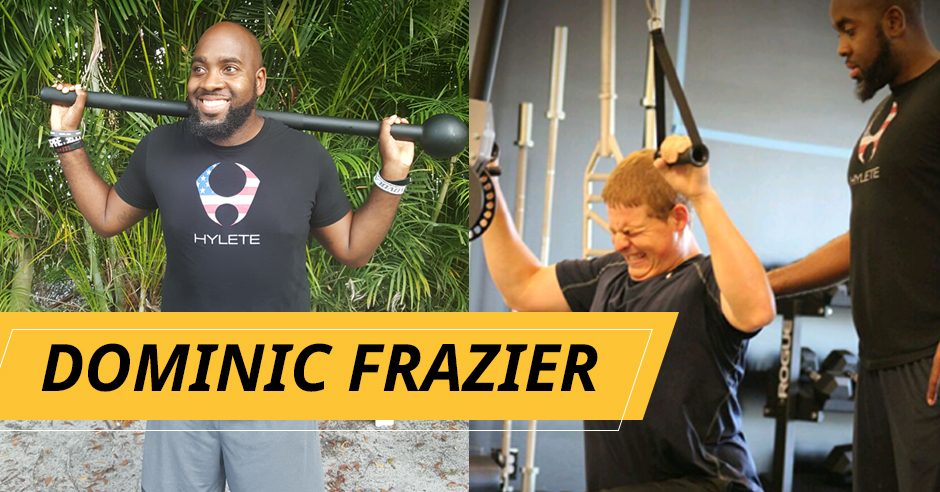
There are many variables to consider when you search for a Georgia personal coach salary. These include expected growth, certification requirements and location. Below are the expected growth and average salaries for this position. It is important that you know that the average salary for this role is not the same as the one in your city.
Average salary
Personal trainer salaries in Georgia can range from $18,319 - $101,573. The median salary is $51,879 per year. These salaries include an average of 22% federal tax and 6% state income taxes. Accordingly, a personal training professional in Atlanta, Georgia could earn $42,310 per year, or $1763 per month.
Many factors influence the salary of a Personal Coach, such as experience, location and commission. These numbers are not intended to be a guideline for what a Personal Trainee can expect. They can also work for gyms, fitness centers, or as a self-employed trainer.

Certifications required
Georgia does not require a statewide certification for personal trainers, however they should have some education and training. Many employers are looking for GED or high school graduates. They often also need to be certified in CPR and first-aid. While not required, a post-secondary degree can provide an individual with valuable background knowledge and allow them to get started sooner. To gain more knowledge and expertise, people without certifications may need a personal trainer.
A certificate program for personal training is available at the University of Georgia's Griffin Campus. The World Instructor Training School presents the program. The program includes a 30-hour internship, and eight weeks of coursework. It includes 62 hours of classroom instruction, practical training and a national certification exam. This coursework covers a wide variety of subjects, such as exercise physiology, biomechanics and fitness testing.
Locations
Georgia is experiencing an increase in personal trainers faster than any other state. According to the labor department, there should be a 24.7 percent increase in employment between 2008 and 2018. This should translate into around 70 new job openings per year. Savannah is the top-ranked city for location. Sandy Springs and Alpharetta also make the top ten.
Georgia is a diverse state. It's not the most financially successful state, but it does have great healthcare and business freedom. It is also 26th in fitness. It offers personal training opportunities due to its diverse population.

Expected Growth
On average, a Georgia personal trainer earns 4.2% more than the national median. Those who have been in this industry for a while can expect to make 3.8% more. According to Georgia's labor division, the number personal trainer jobs is expected to rise by 24.7% in Georgia between 2008-2018. A personal trainer in Georgia can earn around $38,000 an annual salary. Personal trainers in Georgia hold a majority of bachelor's degrees.
Georgia has a high obesity rate, and 65% of adults in the state are overweight or obese. The state's personal trainers are responsible for helping people to achieve good health through exercise, nutrition, and other activities. This job involves working with a wide range of people, from children to seniors. Some of these individuals may require special exercises for joint problems.
FAQ
Do I lose weight if I exercise?
Yes. Regular exercise can help you shed extra calories and lose weight. Exercising can increase your metabolism so that you can burn calories even when you're not working out.
What does nutrition do for your body?
By providing all the nutrients necessary for growth and development, nutrition helps your body function well. The best way to ensure that you receive adequate nutrition is to eat a balanced diet with plenty of fruits and vegetables, lean proteins, whole grains, and healthy fats.
What is the value of good nutrition?
Good nutrition is vital for our health. A healthy diet should include fruits, vegetables and whole grains as well as lean proteins, dairy products, and legumes. Eating nutritious foods helps us stay fit and active, which leads to better overall health.
Do I need to warm up before exercising?
Warming up before you start an activity will reduce muscle soreness. You can use several methods to warm up: walking, running, jumping rope, stretching, and cycling are just a few examples. Start slow and slowly increase your pace.
Statistics
- One study showed that adults who watch more than 4 hours of television daily had an 80% higher risk of death from cardiovascular disease. (heart.org)
- Globally, 81% of adolescents aged 11-17 years were insufficiently physically active in 2016. (who.int)
- Physical activity confers the following maternal and fetal health benefits: a decreased risk of pre-eclampsia, gestational hypertension, gestational diabetes (for example, 30% reduction in risk) (who.int)
- An estimated 110,000 deaths per year could be prevented (cdc.gov)
External Links
How To
How to burn belly fat faster
Belly Fat is usually seen as a problem when we want to lose weight. If you look at it, belly fat is actually a positive thing. Your organs will be protected by the amount of belly fat. Let's look at how to rapidly lose belly fat.
The main factors that lead to body fat storage are stress and lack exercise. Stress makes us feel hungry constantly because it stimulates the production of the cortisol hormone. Cortisol increases insulin levels in our blood. Insulin then stores excess calories as fat. Insufficient sleep can lead to an increase in appetite and adrenaline release. These extra calories can be broken down by exercising.
There are many ways you can reduce belly fat. Depending on your budget, you can try each one. Here are some quick tips to get rid of belly weight.
-
Reduce your food intake. Eat smaller meals throughout the day rather than eating three big ones. This will help you consume less calories.
-
Get plenty of water. Water helps flush out toxins from the body and keeps you hydrated. Water before each meal can help you feel fuller longer and reduce your appetite so that you don't overeat.
-
Avoid unhealthy snacks. If you're looking for quick fixes, snack foods like chips, cookies, candies, etc. Although tempting, they can be very unhealthy. But avoid these fattening treats as they contain lots of empty calories and too much sugar. Choose healthy options like whole grains, fruits, vegetables, nuts, seeds and nuts.
-
Three times per week, strength training is recommended. Strength training builds muscle mass that burns more calories, even when it is done while you rest. Strengthening your bones, muscles as well ligaments, joints, tendons, heart and lungs.
-
Move regularly and stretch. Stretching improves flexibility and mobility which can reduce back pain. Walking is great for burning calories.
-
Reduce alcohol intake. Avoid alcohol.
-
You can lose weight slowly. First, determine your current weight. Then, add 5% to 10% to your body weight to get your ideal weight. Once you have calculated your target body weight, you can begin to cut calories by 500-1000 calories every day until your goal is reached.
-
Avoid processed foods. These foods are high on sugar, salt, and additives. These processed foods are often convenient, but they lack enough nutrients for good health.
-
Don't skip breakfast! Breakfast improves concentration, memory, energy, and stamina. Protein (like eggs), fiber and complex carbohydrates (like oatmeal) should be included in breakfast.
-
Have regular bowel movements. Gas and bloating can result from irregular bowel movements. Drink plenty of water to prevent gas and fiber ingestion.